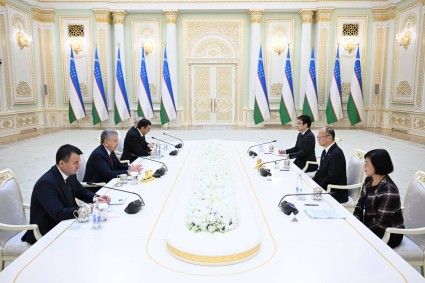The World Bank’s Uzbekistan Country Gender Assessment Report (CGA), produced with the financial support of the government of the United Kingdom, serves as a diagnostic tool to evaluate the state of gender equality in the country.
This report examines gender equality in Uzbekistan across several domains, including education, health, economic activity, protection from gender-based violence, marriage, divorce, and participation in public life.
The CGA considers social norms, assessing cultural attitudes and practices influencing rights and perceptions of women in Uzbekistan’s society. The report offers recommendations to close gender gaps and promote inclusive prosperity.
Key Report Findings
- The CGA highlights Uzbekistan's significant progress on gender equality since 2017. Notable advancements include ensuring equal pay and removing job restrictions for women in the Labor Code adopted in 2022. Additionally, amendments introduced to the Criminal Code in 2023 established criminal penalties for domestic violence.
Consequently, the Women, Business, and the Law Index, annually produced by the World Bank, recognized Uzbekistan as one of the top five improvers in gender equality in 2024.
- Women’s access to education and health services has notably improved. For example, tertiary education enrollment saw significant growth, with men tripling to 29% and women quadrupling to 27.4% between 2017 and 2022.
Efforts to provide equitable healthcare have reduced infant and maternal deaths over the past three decades, with infant mortality dropping from 34.6 deaths per 1,000 live births in 1990 to 9.2 in 2021.
- Despite improvements in legislation and human capital, gender disparities in labor market outcomes persist. In 2021, female labor force participation lagged behind men by 28 percentage points (ppt), far higher than the average for the Europe and Central Asia region excluding high-income countries (19 ppt).
Young women face higher unemployment rates (15.5% vs 10% for males) and the share of young women who were not in employment, education, or training (NEET) reached 42%, compared to 8.8% for males. Additionally, wage gender gaps are significant, with women earning 34% less than men, exceeding the global average of 20%.
- Low pay and employment rates among women directly hinder economic growth and exacerbate poverty in Uzbekistan. If women participated in the country’s economy on par with men, the national income in Uzbekistan would rise by 29%. Simply matching men's wages would lift over 700,000 people out of poverty.
However, entrenched gender norms, where women are primarily responsible for caregiving and household duties, impede progress towards gender equality and inclusive economic growth.
- The authorities must address gender inequality to unleash Uzbekistan’s full economic potential. This includes entrenched social norms limiting women's economic participation, disparities in access to tertiary education in STEM fields, healthcare constraints, worsening family planning options, incomplete protections against gender-based violence, and imbalance representation of women in leadership roles.
Despite these obstacles, the CGA finds that Uzbekistan is leveraging a solid foundation of progress, offering promising prospects for enhanced gender equality in the future.












